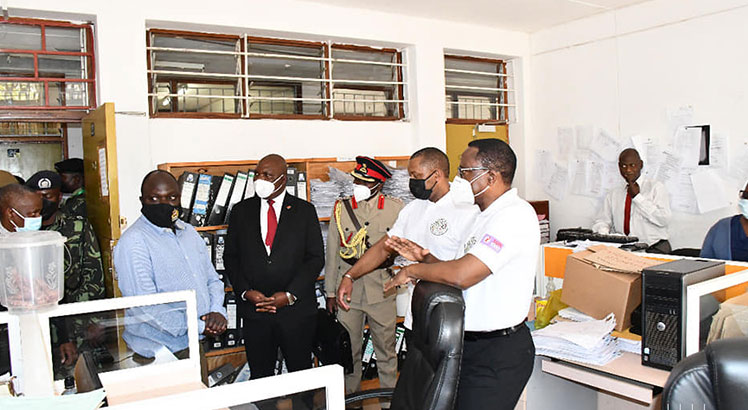Govt salaries devolution on rocks
Eight years after commissioning a new payroll management system through the Human Resource Management Information System (HRMIS), government is yet to fully decentralise payment of civil servants’ salaries.
The fiscal devolution saw the transferring of powers and responsibilities of processing civil servants’ salaries from the central government to local government authorities (LGAs).
Among others, it was envisaged that with the new system accounting officers would be preparing staff salaries at their respective LGAs instead of traveling to Capital Hill in Lilongwe every month to process the same.
However, Weekend Nation has established that accounting personnel from the councils continue travelling to Capital Hill to process the salaries, a move Ministry of Local Government, Unity and Culture has attributed to “frequent network disruptions.”
Government approved the new establishments for the councils in 2005 before the devolution of human resource and payroll management in 2016.
Ministry of Local Government, Unity and Culture acting spokesperson Andrew Nyondo confirmed in an interview that frequent network disruptions arising from power blackouts and system breakdown of the servers have forced accounting officers to be travelling to Capital Hill.

“It has, therefore, been found convenient and speedy by the LGAs that the processing be done at Capital Hill where there is often sustained power backup and functioning servers that guarantee minimum system disruptions,” he explained.
Nyondo said since the payroll management was devolved, it has now been a standard practice that LGAs prepare the GP5 form [the form that summarises salaries information for civil servants] by the 5th of every month before submitting to the Accountant General’s Department for approval of salaries preparation.
But Malawi Local Government Association (Malga) executive director Hadrod Mkandawire said the issue of district staff processing salaries at Capital Hill was retrogressive and resource-consuming.
He said the central government has, in most cases, devolved functions without corresponding financial resources.
“When the payroll management was devolved it did not devolve with corresponding amount of resources.
“We would like to ask government to devolve and install salary Ifmis and HRMIS in all district councils so that processing of salaries should be completed at the council level. We would like also to ask government to devolve payroll budget to all the councils,” Mkandawire said.
The issue of paying salaries to local authorities is in line with the
1998 Decentralisation Policy which calls for government’s commitment to devolve some of its powers to the local authorities.
However, Nyondo said since the ministry facilitated devolution of the staff payroll and human resource management to the LGAs as part of accelerating and deepening decentralisation, there has been timely payment of council staff salaries and reduced ghost workers.
They have also addressed pay point challenges in which officers could be reflected in a particular council’s staff complement while working elsewhere and other irregularities.
“Principally, the HRMIS is indeed applying to the payment of devolved staff salaries. However, this has transcended to payment of chiefs’ honorarium as well,” said Nyondo.





